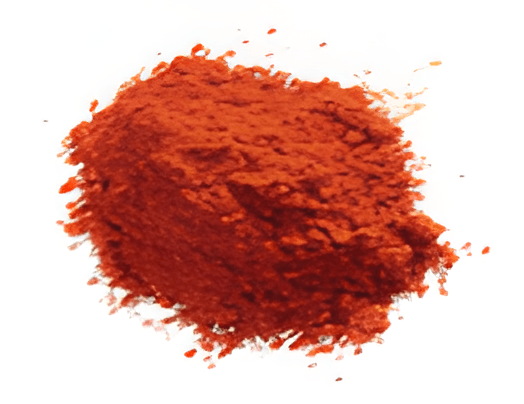
Rhenium Chloride Recycling
Rhenium chloride (ReCl₅) is a rhenium chloride, usually produced by reacting rhenium with chlorine gas at high temperatures. It is an orange-red solid that is unstable in air and decomposes to the lower valence rhenium chloride. Waste rhenium chloride is one source of recycling of rhenium-containing waste. Other sources of recycling of rhenium-containing waste include rhenium powder recycling, rhenium block recycling, rhenium alloy recycling, rhenium oxide recycling, and ammonium rhenate recycling.
- Parameter
- Related Questions and Answers
-
Name : Rhenium chloride
-
Use : Catalysts, electronic materials, high-temperature alloy manufacturing
-
Application Areas : Electronics industry, catalyst field, metallurgy industry, etc.
-
Appearance and properties : A red solid
-
Settlement Method : On-site payment
-
Recycling Type : Rhenium recycling
-
Door-to-door recycling:worldwide
-
Customer service: Free content testing and door-to-door recycling
Rhenium Chloride Recycling
Rhenium chloride (ReCl₅) is a rhenium chloride, usually produced by reacting rhenium with chlorine gas at high temperatures. It is an orange-red solid that is unstable in air and decomposes to the lower valence rhenium chloride. Waste rhenium chloride is one source of recycling of rhenium-containing waste. Other sources of recycling of rhenium-containing waste include rhenium powder recycling, rhenium block recycling, rhenium alloy recycling, rhenium oxide recycling, and ammonium rhenate recycling.
Search : Rhenium Chloride RecyclingAmmonium Rhenate Recycling
Ammonium perrhenate (chemical formula: NH₄ReO₄) is the ammonium salt of rhenium and usually appears as white or colorless crystals. Waste ammonium rhenate is one source of recycling of rhenium-containing waste. Other sources of recycling of rhenium-containing waste include rhenium powder recycling, rhenium block recycling, rhenium alloy recycling, rhenium oxide recycling, and rhenium chloride recycling.
Search : Ammonium Rhenate RecyclingRhenium Powder Recycling
Rhenium powder is a fine powder of elemental rhenium, usually gray or silvery-white in color, with excellent resistance to high temperatures and corrosion. Waste rhenium powder is one of the recycling sources of rhenium-containing waste. Other recycling sources of rhenium-containing waste include rhenium powder recycling, rhenium block recycling, rhenium alloy recycling, rhenium oxide recycling, and rhenium chloride recycling.
Search : Rhenium Powder RecyclingRhenium Alloy Recycling
Rhenium alloys are alloy materials composed of rhenium and other metals (such as tungsten, molybdenum, and nickel) that have a very high melting point, strength, and corrosion resistance. Waste rhenium alloys are one of the sources of recycling of rhenium-containing waste. Other sources of recycling of rhenium-containing waste include rhenium powder recycling, rhenium block recycling, rhenium alloy recycling, rhenium oxide recycling, and rhenium chloride recycling.
Search : Rhenium Alloy RecyclingProduct Details
Rhenium chloride (ReCl₅) is rhenium chloride, which is usually produced by reacting rhenium with chlorine gas at high temperatures. It is an orange-red solid that is unstable in air and decomposes to the lower valence rhenium chloride. Rhenium chloride is often used in the synthesis of rhenium compounds and is an intermediate for many rhenium-based chemicals. Due to its high reactivity, rhenium chloride has particular applications in the production of catalysts, electronic materials, and high-temperature alloys, especially in materials that require high temperature and corrosion resistance.
The common methods for producing rhenium chloride are mainly as follows:
1. Reaction of rhenium with chlorine: Rhenium chloride (ReCl₅) can be produced directly by reacting rhenium metal with chlorine at high temperatures. This reaction is usually carried out at high temperatures above 700°C. Rhenium metal reacts with chlorine gas to form rhenium chloride, and the product is an orange-red solid rhenium chloride. Because rhenium chloride is unstable in air, the reaction process requires strict control of temperature and chlorine concentration to avoid the formation of low-valent rhenium compounds. This is the most common and direct method for producing rhenium chloride and is widely used in industrial production.
2. Reaction of rhenium salt with hydrogen chloride: In this method, rhenium salt (such as ammonium rhenate) is first dissolved in water to form a solution containing high-valent ions of rhenium. Then, hydrogen chloride (HCl) gas or hydrogen chloride solution is introduced into the solution, and the rhenium ions in the rhenium salt react with hydrogen chloride to form rhenium chloride precipitate. The reaction can be carried out under mild conditions, and the production of rhenium chloride can be controlled by adjusting the concentration of hydrogen chloride and the reaction time. High-purity rhenium chloride can be obtained by filtering, washing and drying the precipitate. This method is relatively simple and suitable for laboratory and small-scale production.
3. Reaction of rhenium with chloride: In this method, rhenium metal is reacted with hydrogen chloride or other chlorides (such as zinc chloride) to produce rhenium chloride. The reaction conditions are relatively mild, and compared with the reaction with chlorine gas, it is easier to control the purity and yield of the produced rhenium chloride. The reaction of rhenium with chloride is usually carried out in a suitable solvent, and the synthesis of rhenium chloride is optimized by adjusting the reaction conditions (temperature, reaction time, etc.). This method is suitable for preparing relatively pure rhenium chloride, has a certain degree of flexibility, and is suitable for use in laboratories and production processes with specific requirements.
Waste rhenium chloride is one of the recycling sources of rhenium-containing waste. Other recycling sources of rhenium-containing waste include rhenium powder recycling, rhenium block recycling, rhenium alloy recycling, rhenium oxide recycling, and ammonium rhenate recycling. If you need germanium scrap recycling, please call our 24-hour service hotline. Ding Feng precious metal recycling and refining manufacturer has its own independent recycling and refining factory without any middlemen to create price difference, our professional technical team and customer service staff provide one-on-one service and ensure customer privacy during the recycling process.

